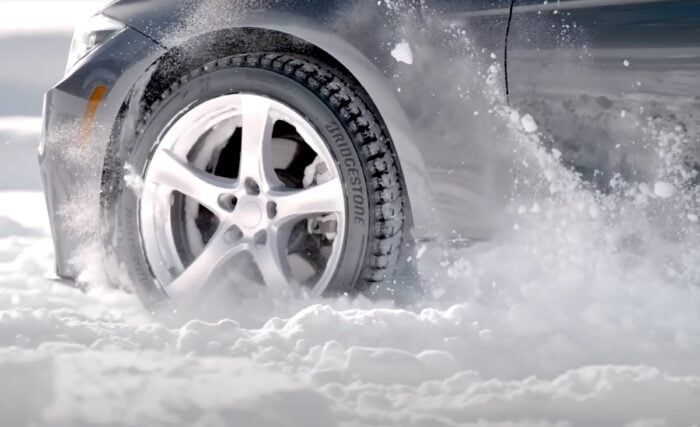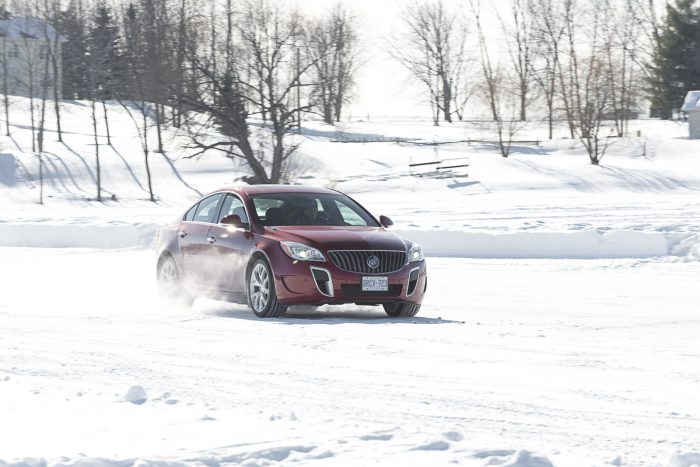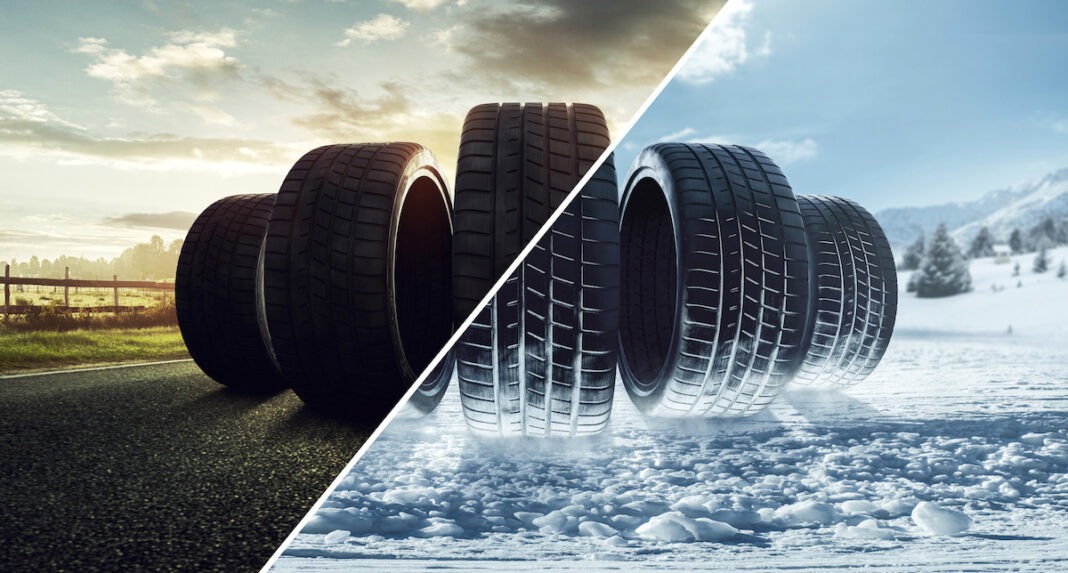In theory, yes, though the answer really depends on the construction of the tire. A chunkier tread pattern might lend itself better to driving in snow, but even a sportier tire design can find grip in wintry conditions if its rubber compound is formulated for traction on icy surfaces.
Certain jurisdictions across North America (including some areas of British Columbia in Canada, for instance) require all cars to be fitted with all-season tires (as opposed to summer-only tires) during the winter months.
Still, we recommend dedicated winter tires for vehicles driven regularly in freezing weather and snow and ice conditions. Their rubber compounds stay softer and more flexible in the cold, and their tread designs are optimized to find as much grip as possible on slippery surfaces.
How do you know your tires are all-season?

First, it’s essential you know how to read tire sidewall markings. All-season tires are on the sidewall and bear the M+S (mud and snow) designation. That means the tire has wider tread grooves and larger tread blocks to provide more traction in muddy and snowy conditions than a tire intended for summer driving only. Seen here:
What is a touring all-season tire?
A touring all-season tire tries to be all things to as many different types of drivers as possible. Its design will prioritize the most commonly desired qualities in a tire, like long tread life, a quiet ride, and valuable winter traction. Expect a touring all-season tire to cost more than those labeled simply as “passenger” all-seasons.
The Pros and Cons of Riding on All-Season Tires in Snow

As the term suggests, an all-season tire is meant to provide confidence-inspiring performance under any road condition. For a performance-oriented car, an all-season tire is a better choice for occasional winter driving than a summer tire.
If you have a vehicle that will see limited use in winter conditions and you don’t want to have to switch between dedicated summer and winter tires, a quality set of all-seasons is a suitable compromise.
Pros
Cost-Effective: All-season tires can be more economical over time since they eliminate the need for two sets of tires, saving on the cost of purchasing and installing winter tires.
Convenience: They provide convenience for drivers who do not want to change tires seasonally, especially in regions with milder winters where extreme weather is not a frequent concern. Also, less tires means less storage in the garage.

Moderate Winter Performance: While not as effective as winter tires, modern all-season tires have improved designs that can handle light snow and cold temperatures better than summer tires. We recommend something more premium for more aggressive winter driving, like the Continental UltimateContact or Bridgestone Blizzak WS90.
Year-Round Utility: Suitable for diverse driving conditions, all-season tires offer reasonable performance in dry, wet, and light snowy conditions, making them a versatile choice for drivers in regions with varying weather.
Cons
Reduced Traction in Extreme Conditions: All-season tires lack the deep treads and softer rubber compounds of winter tires, resulting in less traction on ice and deep snow, which can compromise safety.
Longer Stopping Distances: On icy or snowy roads, all-season tires generally have longer stopping distances compared to winter tires, increasing the risk of accidents in harsh conditions.
Temperature Limitations: The rubber compounds in all-season tires can harden in very cold temperatures, reducing grip and affecting handling. With their softer compounds, winter tires maintain flexibility and grip in freezing conditions.

Not Ideal for Performance Enthusiasts: Drivers who prioritize high performance in winter conditions may find all-season tires lacking in terms of handling precision and control on snowy and icy roads.
Less Effective in Heavy Snow: In regions with frequent heavy snowfall, all-season tires may not provide sufficient grip and control, leading to challenges in maintaining vehicle stability
Takeaway
Sure, having one set of tires all year round will keep more money in your wallet, save time and hassle, and avoid hogging valuable garage or shed space. And while all-seasons will offer adequate performance during the winter months, nothing beats a set of winter-only tires for snow and sleet. The difference in performance, including stopping power, is significant. Best part? You can buy affordable winter tires instead of a used set, which comes with risks.


